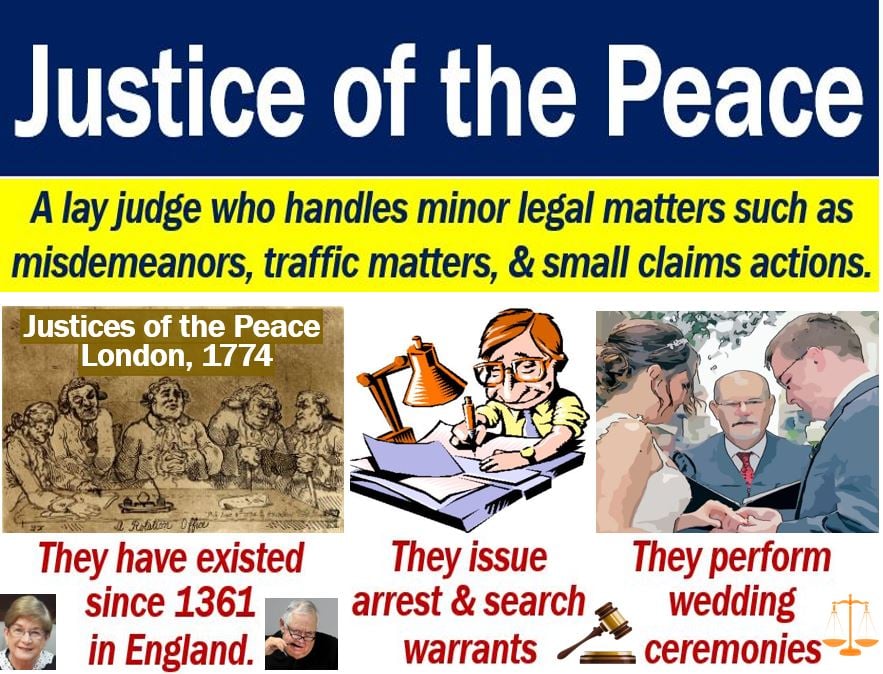A justice of the peace is a judicial officer who conserves peace and hears and determines minor offense charges. They sign arrest and search warrants, take statutory declarations, and administer oaths.They also perform marriage ceremonies and carry out other civil functions.
Justices of the peace are lay judicial officers. In other words, they are not specialized legal professionals. Although they have limited power, they do commit offenders. They work in the justice system.
However, unlike peace or police offices, justices of the peace are civil public officers. People may refer to them as magistrates, district judges, police judges, or magistrates. The name of their position varies across the English-speaking world.
In the legal system of England and Wales, historically, lay people have worked in the judicial decision-making process of the courts. English and Welsh people call them magistrates or justices of the peace.
In the UK, magistrates deal with most white collar crime cases. White collar refers to things that happen in an office, rather than manual work. Fraud and embezzlement, for example, are white collar crimes.

Justice of the peace – brief history
The position originated in 1361 in England. Justices of the peace began to exist after the passing of the Justice of the Peace Act.
When America was a British colony, it was the most powerful public office open to colonists. The position, with its executive, judicial, and legislative powers, was the main political force of the community.
During the colonial era, maintaining order in the community was a priority. In this period, the justice of the peace was responsible for arraigning and arresting individuals who had broken the law. To arraign means to formally accuse a person in a court of law and ask them how they plead.
They were also in charge of dealing with people who had violated moral standards.
In the early eighteen hundreds, justices of the peace dealt with price evasion, adultery, public disorder, and drunkenness. Price evasion means selling goods below the minimum legal price.
